How to Buy the Best Kitchen Knives
Published On: 5/23/2019 Last Modified: 6/16/2025
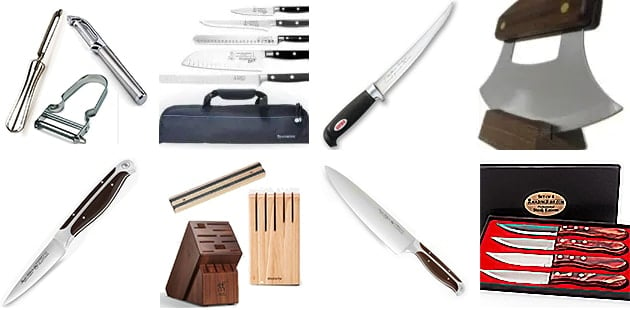
A few sharp, good quality knives are the most essential tools in any kitchen.
The TV Chefs all have their own brands, and the cooking school instructors rave over the $300 Shun Elite and Kyocera, and other really expensive blades that are made from space age ceramics or hand forged from secret alloys and fitted ebony handles.
But the dirty secret is that restaurants use much cheaper knives that they sharpen frequently or even throw away when they wear out. For our wedding in 1974, my wife and I were given a beautiful set of Henckels, high quality German knives, and they’re still going strong with professional sharpening every year.
Click Here To Search Our Reviews And Ratings Of Tools, Toys, And Accessories
Today, Günther Wilhem knives are my all-time favorites. They are durable, sharp, and absolutely beautiful.
The best knives are made of special alloys that remain hard and keep their edge, yet are soft enough that they can be sharpened, a process that grinds away small parts of the steel. The best knives are forged, a process of pounding and grinding. The tang, the tail part that goes into the handle, goes all the way to the end of the handle, and is riveted into the handle, which should have a comfortable grip.
The handle should be tight against the tang so no water or food can get into it. The best knives are well balanced and easy to handle. Forged knives have an integral bolster (shield) between the blade and the tang. Alas, high quality knives should not go through the dishwasher. The caustic soap dulls the blade.
Does this mean you need to spend hundreds of dollars on an entire set of forged knives? No. Just a few good quality knives are all you really need. Before you buy, learn everything you need to know about knives here. You can also read the nitty gritty on the pros and cons of different metal alloys and knife manufacturing methods in our article on The Science of Knives here.
Once you have an idea of the right knife for you, here are some fine options. Remember: no matter what knife you buy, the most important thing is that it feels good in your hand. Balanced, not too heavy, not too light, and not so long or so short that cutting seems like a chore. Visit a cookware store and pick up a few knives to get a sense of how different ones feel in your hands.
Gunter Wilhelm Premier ProCut 3.5 Inch Paring Knife
The Gunter Wilhelm Premier ProCut 3.5 inch inch Premier ProCut Paring Knife is a superb blade that is also drop dead gorgeous.Gunter Wilhelm Premier ProCut 10 Inch Serrated Offset Bread Knife Review
The Gunter Wilhelm Premier ProCut 10 inch Serrated Bread Knife is a blade with a wicked sharp cutting edge. Plus, it's drop dead gorgeous.The Rapala Fillet Knife Is Cheap, Sharp And Versatile
This cheapo knife has a thin flexible blade with a dangerously sharp edge and a wicked sharp tip. And it costs less than $15.Mercer Culinary Granton Edge Slicing Knife Review And Rating
The Mercer Slicing Knife's 11-inch length makes slicing a breeze while the scalloped edge ensures the meat won't stick to the blade.The Messermeister Meridian Elite Knife Kit Travels Well
Messermeister Meridian Elite Knife Set has quality forged knives, and if you're looking for a basic knife roll, it makes a great choice.Alaskan Ulu Rocker Knife
This Alaskan Ulu Rocker Knife, designed for skinning hides, comes in very handy in the kitchen, especially for mincing herbs.Professional Brazilian Steakhouse Knife Set
This machine washable professional Brazilian steak knife set was hand selected by Meathead. Read on for our review.Products For Storing Your Knives Safely And Damage Free
You need a dedicated place to store all your knives. A knife block or magnetic strip would be just the thing.Cleaver: An Ideal Knife To Have On Hand For Cutting Through Bone
When cutting through bones, a cleaver is a great tool to have in the kitchen. I don't use mine often, but I'm glad I have one.Vegetable Peelers: An Inexpensive But Necessary Tool For The Kitchen
The vegetable peeler is an indispensable tool in the kitchen. Read here to know what to look for when buying one.Related articles
- Everything You Need to Know About Knives (3 Pages, 2 Articles)
- A Guide to The Best Knife Sharpeners
- Electric Knives That Make The Cut
- BBQ And Kitchen Tools, Toys, And Accessories Rated And Reviewed (23 Pages)

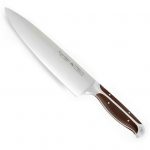
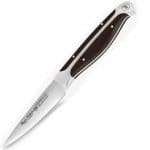
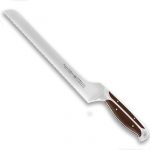
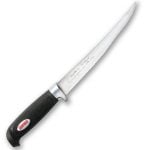
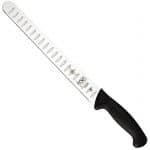
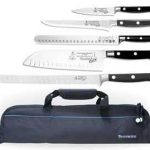
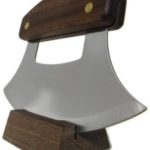
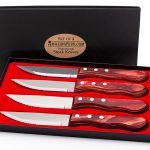
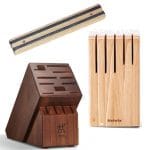
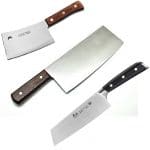
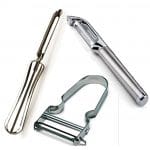
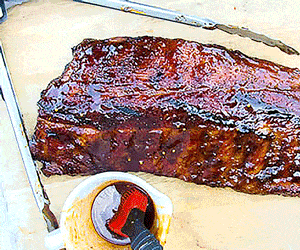
High quality websites are expensive to run. If you help us, we’ll pay you back bigtime with an ad-free experience and a lot of freebies!
Millions come to AmazingRibs.com every month for high quality tested recipes, tips on technique, science, mythbusting, product reviews, and inspiration. But it is expensive to run a website with more than 2,000 pages and we don’t have a big corporate partner to subsidize us.
Our most important source of sustenance is people who join our Pitmaster Club. But please don’t think of it as a donation. Members get MANY great benefits. We block all third-party ads, we give members free ebooks, magazines, interviews, webinars, more recipes, a monthly sweepstakes with prizes worth up to $2,000, discounts on products, and best of all a community of like-minded cooks free of flame wars. Click below to see all the benefits, take a free 30 day trial, and help keep this site alive.
Post comments and questions below
1) Please try the search box at the top of every page before you ask for help.
2) Try to post your question to the appropriate page.
3) Tell us everything we need to know to help such as the type of cooker and thermometer. Dial thermometers are often off by as much as 50°F so if you are not using a good digital thermometer we probably can’t help you with time and temp questions. Please read this article about thermometers.
4) If you are a member of the Pitmaster Club, your comments login is probably different.
5) Posts with links in them may not appear immediately.
Moderators